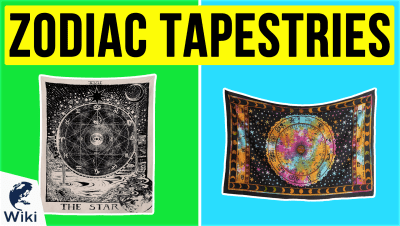The Best Free Video Maker For College Students
Though writing essays is a standard part of any university education, the one drawback is that it isn't something most students will end up doing in their professional careers. Many educators struggle with the balance between evaluation and preparing their students for the real world. Ezvid Wikimaker is a valuable tool that helps students turn their term papers into multimedia presentations available on the web, reflecting the type of work they are likely to do in their careers. Here we will go over the benefits of Wikimaker and how it can be incorporated into your curriculum. Check out some of the articles made with Wikimaker, and when you're ready, give it a shot and create your first wiki. This video was made with Ezvid Wikimaker.
What Is Ezvid Wikimaker?
Ezvid Wikimaker is a free online video editor. Rather than forcing you to edit footage and record audio yourself, Wikimaker provides voice synthesis, automatically creating narration to go with your written essay, as well as adding music. It also adds images and video clips to match your writing. You can add or delete images to create an entertaining and informative video. And with Wikimaker Capture, you can add your own images and recordings to display your research on your subject matter and add clarity to your writing.
What Are Some Advantages Of Ezvid Wikimaker?
- Instant video creation
- Text-based video editing
- Built-in fair use images and videos
- Voice synthesis
- Screen recording and image capture
What Kinds Of Projects Can Ezvid Wikimaker Be Used For?
- Film And Media Essays - present visuals of the media being discussed in the essay for more exact analysis
- Demonstrate Research Ability - show your sources and the exact steps of your research with screen recordings
- Interdisciplinary Projects - incorporate multiple fields of study by employing research, writing, video editing, and web content creation into one project
- Instructional Videos - create how-to videos to go with your assignments so students will know exactly what is expected of them and how to find important information
- Career Preparation - get your students ready for life after college by having them create web content that is similar to what they'll be doing in the real world
- Portfolio Creation - have students build an online resume that will display their skills for prospective employers
Wikimaker vs. Other Video Editors
| Feature | Wikimaker | Other Video Editors |
|---|---|---|
| Web-based workflow | ||
| Screen captures and recordings | ||
| Videos over 8 minutes or 1,000 words | ||
| Automatic voice synthesis | ||
| Fair use images and video clips | ||
| Free music added automatically | ||
| Online hosting on Ezvid Wiki | ||
| Choose your own video FX | ||
| Essay text published with video |
Where Can I See My Video Once It Is Done?
Your wiki will be published on Ezvid Wiki, where you can watch the video as well as read the written text paired with the images you've uploaded and captured. Students can submit their wikis online so they can be reviewed and graded, and afterward, they will still be available. This means they can use them as samples of their writing and editing abilities as they look for internships and jobs post-graduation.
Helpful Links
- Ezvid Wikimaker
- Ezvid Wikimaker Capture for Chrome, Windows, and Mac
- Articles Made With Wikimaker
- How To Use Wikimaker
In Depth
Writing term papers is a rite of passage for any student at a college or university. It's a great way to test students' understanding of the material, but doesn't have much in the way of real-world application. Graduates will find that in the professional world, creating multimedia content for the web is far more common. But your class is a critical studies course, not a video editing or web design course. Luckily, there is now a simple video editor that can allow students to develop these skills in their writing assignments.
Ezvid Wikimaker takes just a short time to learn and allows you to add video content to your writing. Along with the Wikimaker Capture tool, you can use images and videos from the web, as well as upload your own videos. In addition, you'll have access to a library of stock images and footage to use in your wikis, which will be published online. The video will match the text of your essay, so by the end, you will have a written work as well as a video version that shows your sources and exhibits your understanding of timing and visual storytelling.
But of course, the writing comes first. You can compose your essay in a word processing program, or write as you go in Wikimaker. Type your first paragraph in the box and hit "Enter." Wikimaker will generate a voice synthesis, so you can hear your words spoken aloud in your video. It will also generate images and videos to match key words in your paragraph, which you can see on the left side of your screen when you scroll down.
It will also generate images and videos to match key words in your paragraph, which you can see on the left side of your screen when you scroll down.
Some images may be irrelevant or appear too quickly. You can delete them by clicking the "X" in the lower left of the thumbnail. This will test your students' ability to pace out visuals and show how much thought they've put into image selection. They can also add their own images and videos using Wikimaker Capture, which lets you add content specific to your essay.
The Wikimaker Capture extension for Chrome allows you to include images you find on the web. Simply click on the icon in the upper right corner and you can crop an image, draw on it, and save it - it will appear under "Captured" in Wikimaker. You can also make a recording in your browser to show a specific process, which is great for outlining step-by-step instructions or demonstrating research ability.
You can select the image you need to send it to "Ready," and then click on the plus sign to link it to a word in your text. When that word is spoken in the video, your image will appear. And with recordings, you can choose which frame to start the video at so you get the exact moment you want.
And with recordings, you can choose which frame to start the video at so you get the exact moment you want.
With Wikimaker Capture for Windows and Mac, you can make recordings of your entire computer screen, allowing you to present media from other programs. And by using the upload function, you can add video files to complement your essay and really take advantage of the visual medium.
When you play this section back, you'll see that the images and videos you've added play along with the narration. You can repeat this process to craft an entire video essay. When you're done, you can submit it for publishing, and you'll be able to view your wiki on a live webpage, and share the URL to allow others to see it.
Since your students' wikis will be on the web, there's no need for them to hand anything in or upload any files, so there will be no excuses for lateness. And with a video tutorial that outlines the assignment, you won't need to answer frantic questions the night before it's due.
Since your students' wikis will be on the web, there's no need for them to hand anything in or upload any files, so there will be no excuses for lateness.
Creating videos to go with essays is a great exercise for film and media studies students, but it's also great for liberal arts majors working across disciplines, or students in general education courses who want to incorporate their major field of study. And by showing your sources on the screen, there's no need for cumbersome footnotes. so sloppy research will be easy to spot. Students lacking in writing skills may find that incorporating visuals helps them understand sentence structure more easily.
If you've always wanted to incorporate more multimedia presentations into your curriculum but lacked the resources, now you finally can. Since every page and video is hosted by Ezvid Wiki and Wikimaker is free to use, all your students will need is access to a computer and the Internet and they can create their own video essays.
Most of all, your students will appreciate being able to produce work in a format they're familiar with that has applications in the real world. If you're tired of the dreaded "How will we use this in real life?" aspect of college, you'll now be able to let your students create web content that not only develops knowledge and skills, but is available online afterward for them to use as proof of their abilities to help them get jobs after graduating.

















